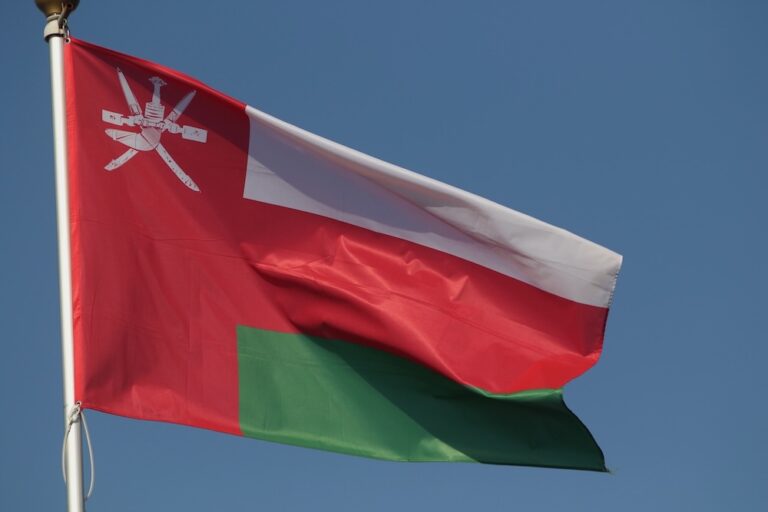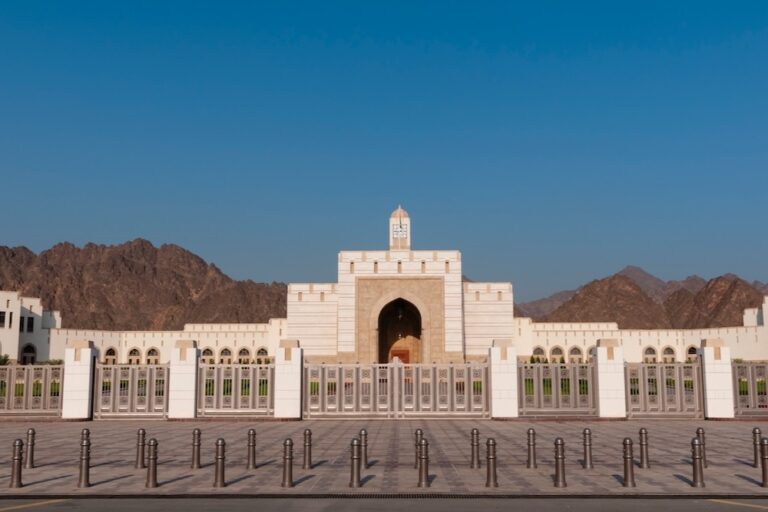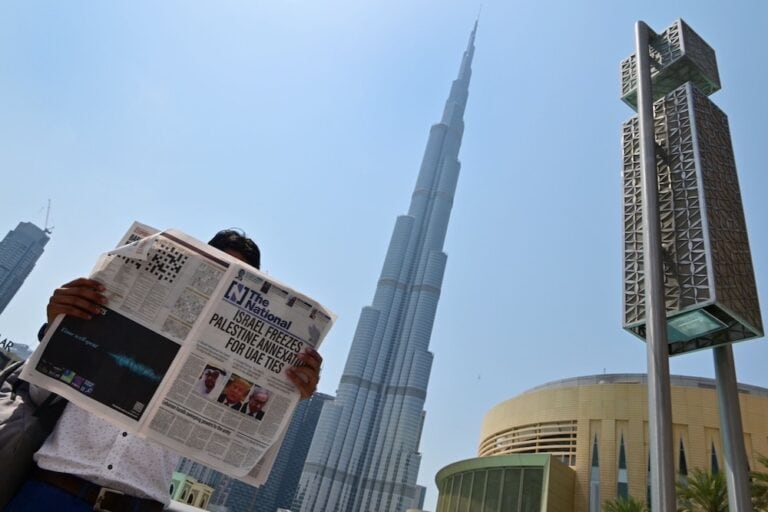Apart from their geography and shared culture, what Kuwait, Oman, and Bahrain have in common is aging authoritarian leadership coupled with a young, Internet-savvy populace: an obvious recipe for tension.
(EFF/IFEX) – 29 January 2013 – An article in this week’s Economist describes a scenario in which—following the destruction of a mall’s kiddie dinosaur display by the country’s morality police—Saudi Arabia’s Twitter users quickly make a hashtag go viral, building off one another’s jokes and mocking some of the country’s most archaic laws. As the article notes, many of the jokes mocked the morality police themselves, such as one in which a Twitter user quipped: “They worried that people would find the dinosaurs more highly evolved than themselves.”
This is Saudi Arabia in the age of new media. With so many Twitter users (according to the Dubai School of Government’s Arab Social Media Report, Saudi Arabia comes in second in the region to Turkey at nearly 350k users), Saudis wishing to mock their government officials on the site benefit from strength in numbers. Not so in neighboring Oman, for example, which has an estimated 6,500 users, or Bahrain, where Twitter users number around 58,000.
This matters because, in the countries that comprise the “Gulf States,” citizens are increasingly taking to social media to air their grievances against government officials, and are also increasingly being arrested, detained, or harassed for it, as we’ve noted in the past.
Last week in Oman, eight individuals were sentenced for lèse majesté and “cybercrimes,” with sentences up to one and a half years in prison. The eight join an additional 28 individuals that were sentenced in December for similar crimes.
Things in the rest of the neighborhood aren’t much better, suggests activist Mona Kareem in Al-Monitor: “At the current rate, Kuwait will soon be able to compete with neighboring Bahrain in the number of prosecutions brought against Twitter users.”
Kuwait, marginally the most democratic of the Gulf states, appears to be waging war on its social media users, going after those who dare broach the topic of the country’s royal family.
In Bahrain, where things have gone from bad to worse over the past few months, a photographer and a human rights activist detained in December are both set to go on trial today. The photographer, Ahmad Humaidan, was charged with attacking a police station, though he claims to have merely been documenting the use of violence by security forces. The activist, Sayed Yousef al-Muhafda, was detained on charges of “circulating false news” on Twitter. Specifically, the charges stem from a Tweet posted on December 17, 2012 that included a photo of an injured protester together with the text “#Bahrain I can confirm one shotgun injury now in #Manama.”
Apart from their geography and shared culture, what these countries have in common is aging authoritarian leadership coupled with a young, Internet-savvy populace: an obvious recipe for tension. And though one need only look to the rest of the region to see the various directions in which such tension might lead, one thing is immediately clear: the governments of Oman, Kuwait, and Bahrain are, in all of the aforementioned cases, in violation of their citizens’ human rights.


